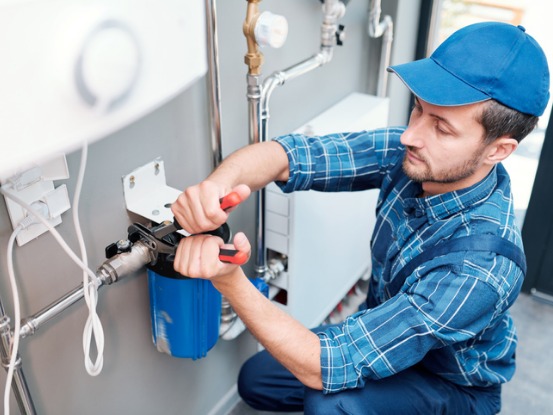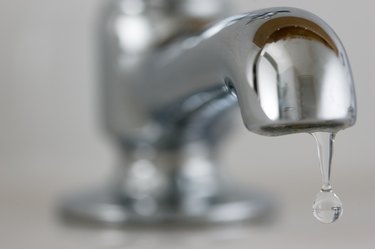Tested Strategies for Solving Low Water Pressure in Your Home
Tested Strategies for Solving Low Water Pressure in Your Home
Blog Article
What are your thoughts on 10 Reasons for Low Water Pressure in Your House?

Low water stress in your house can be a discouraging problem, affecting whatever from showering to cleaning meals. If you're experiencing weak water flow, there are a number of feasible reasons and solutions to explore. In this guide, we'll discuss common reasons for low water stress and practical actions to resolve the concern efficiently.
Introduction to Low Tide Stress
Low water pressure occurs when the flow of water from your faucets, showers, and other components is weaker than usual. This can make day-to-day jobs much more difficult and much less reliable. Understanding the reasons for low water pressure is critical to finding the ideal remedy.
Usual Sources Of Low Tide Stress
Faulty Stress Regulators
Pressure regulators are accountable for maintaining consistent water stress in your house. If they malfunction, it can lead to low water stress or unequal flow throughout your house.
Local Water System Issues
In some cases, the trouble exists outside your home. Community water problems, such as main line leakages or maintenance job, can briefly reduce water pressure in your location.
Pipe Obstructions
With time, pipes can come to be blocked with natural resource, debris, or debris, restricting the flow of water. This is a common issue in older homes with galvanized steel pipes.
Corrosion
Deterioration within pipelines can result in leaks and reduced water stress. Rust build-up can tighten water flow, particularly in aging plumbing systems.
How to Identify Low Tide Pressure
Checking Pipes
Evaluate visible pipes for indications of leakages, corrosion, or clogs. Take note of any kind of uncommon audios, such as banging or rattling pipelines, which might show issues within the plumbing system.
Consulting with a Plumber
If you're not able to determine the root cause of low tide stress, take into consideration working with a specialist plumber to conduct an extensive evaluation. They can recognize underlying issues and suggest suitable remedies.
Examining Faucets and Fixtures
Beginning by checking the water stress at various faucets and components throughout your home. If the issue is separated to specific areas, it may show localized issues.
Do It Yourself Solutions to Take Care Of Low Water Pressure
Flushing Hot Water Heater
Sediment build-up in the hot water heater can limit flow and reduce efficiency. Flushing the tank occasionally aids get rid of debris and maintain optimal performance.
Inspecting Stress Regulator
Ensure that the pressure regulatory authority is working appropriately. Readjusting or changing the regulator can aid restore appropriate water pressure throughout your home.
Cleaning Up Aerators and Showerheads
Natural resources can build up in aerators and showerheads, reducing water circulation. Get rid of and cleanse these elements routinely to improve water stress.
Clearing Up Clogs in Pipes
For small obstructions, try utilizing a plumbing serpent or chemical drain cleaner to clear blockages in pipelines. Be cautious when using chemicals and comply with safety standards.
When to Call a Specialist Plumber
If DIY efforts stop working to settle the issue or if you think considerable plumbing troubles, it's ideal to seek assistance from an accredited plumber. They have the competence and devices to address complex issues securely and effectively.
Preventive Measures to Keep Water Pressure
Setting Up a Pressure Booster
Think about installing a pressure booster pump to boost water pressure in locations with regularly reduced flow. This can be particularly beneficial for multi-story homes or residential properties with high-demand fixtures.
Tracking Water Usage
Be mindful of water use habits and stay clear of ill-using the plumbing system. Straightforward modifications, such as shocking showers and laundry loads, can aid maintain sufficient water pressure.
Regular Upkeep
Set up regular upkeep for your plumbing system to avoid problems such as corrosion, leakages, and obstructions. Resolving small problems early can assist avoid even more significant repairs in the future.
Verdict
Handling low water pressure can be frustrating, however recognizing the underlying causes and carrying out ideal services can bring back optimum flow throughout your home. Whether it's cleaning up aerators, checking pipelines, or seeking advice from a plumber, taking aggressive actions can make sure a consistent supply of water for your everyday needs.
FOUR WAYS TO FIX LOW WATER PRESSURE NOW
Turning on a shower or faucet only to find the water comes out in a sad, slow drizzle is never a good feeling. How exactly are you supposed to wash a pan or take a quick shower when it takes 10 minutes just to rinse off a little soap? The good news is that when your water pressure is bad, there's always a cause: typically one that can be easily fixed. Here are some of the most common causes of low pressure and what you can do to fix the issue:
DEBRIS AND MINERAL DEPOSIT BUILDUPS
If you notice low water pressure from just one or two of the fixtures in your house, the problem likely has to do with debris buildup. Water is full of minerals and other debris, all of which can accumulate in your pipes and on your fixtures. This can cause a blockage that affects how much water flows through. To fix this, try filling a small plastic bag with white vinegar, and use a rubber band to hang it around your showerhead or faucet. Let the head of the fixture soak for a few hours, and the vinegar should loosen the deposits.
WATER LEAKS
Leaks are another common cause of low water pressure. If water is flowing out of your plumbing through a hole or crack before it can reach your fixture, the pressure coming out of the faucet or showerhead will be lower. A plumbing professional is your best bet for finding and repairing a leak in your water supply pipes.
Leaks are another common cause of low water pressure. If water is flowing out of your plumbing through a hole or crack before it can reach your fixture, the pressure coming out of the faucet or showerhead will be lower. A plumbing professional is your best bet for finding and repairing a leak in your water supply pipes.
A VALVE ISSUE
If you have low water pressure throughout your home, check your main shut-off valve to make sure it's completely open. You may also want to see if there's a pressure-reducing valve installed. If there is, have a plumber help you adjust the settings to get the pressure you're looking for.
OTHERS USING WATER
Believe it or not, your low water pressure could be caused by your neighbors. If you notice low pressure at certain times of day, it may be because you and the people living next to you have similar schedules - when everyone is showering at the same time, the pressure will be lower in every home. Low pressure throughout the neighborhood may also be caused by an issue with your municipal water supply. If that's the case, call the supplier to see if they're working on the issue.
https://www.rotorooter.com/blog/water-leaking/low-water-pressure-fixes/

I was shown that write-up about through a friend on another web property. Enjoyed our entry? Please quickly share it. Let someone else check it out. Many thanks for being here. Kindly stop by our website back soon.
Call Today Report this page